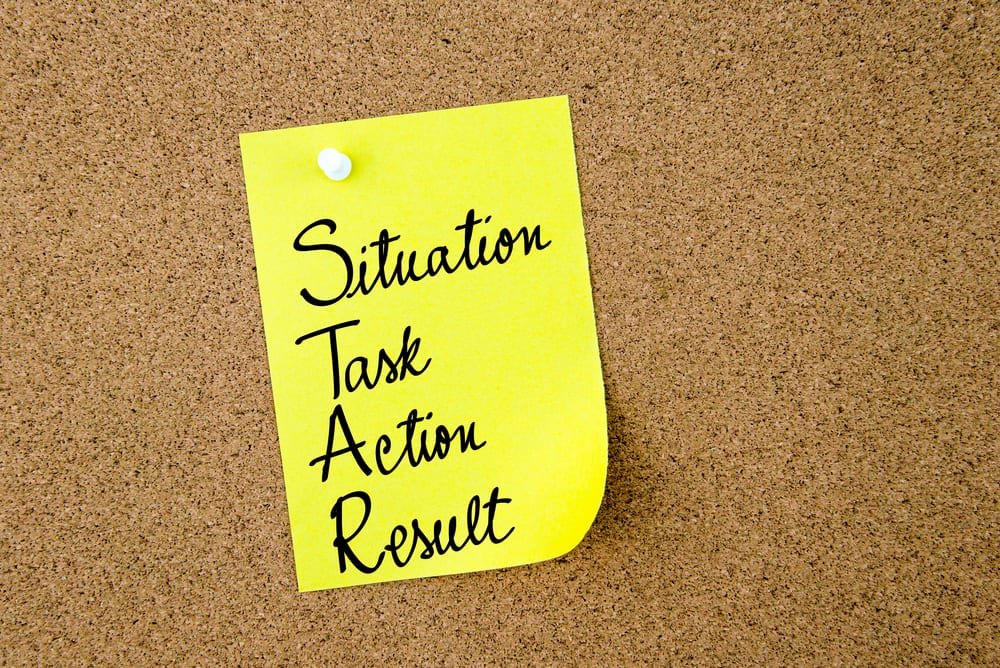Research undertaken by Michael Page suggests the STAR technique can improve candidate success rate by anything up to 50%; it’s a great way of retaining an interview’s attention while ensuring the key elements of a best practice competency question are included.
STAR stands for Situation, Task, Action, Result, and it is particularly effective when answering competency questions, which are often prefaced with the phrase ‘tell me about a time when…’. They’re looking for evidence of a particular skillset, and what they’re looking to hear is that a) you have that strength and b) you can give a persuasive example of it.
The key to making the technique work is to construct your responses into succinct narratives with a beginning, middle and end, beginning with a brief overview of the situation: the when, where and what.
So, in answer to a question asking you, for example, to describe a time when you worked in a team to achieve a goal, you’d mention the employer, the role and the task before you.
You can then move on to the most detailed part of your answer, which will be the action, where you describe how you met the deliverables of the task. Use ‘I’ not ‘we’, even for teamwork questions, and describe your use of available resources, and the personal and relevant skills you brought to the table. The action is the most important part of your answer, and should account for 60% of the two or so minutes taken for the question; focus on your strengths, and don’t go into too much irrelevant detail.
You now need to round off your answer by outlining a positive result. This is where you get to demonstrate the benefits those actions had for the company; sound as warm and enthusiastic here as possible.
As with all good storytelling, brevity and clarity are all key to answering interview questions, but the most important thing is to make sure that you’ve shown the interviewer that you have the skills for the job.
City CV can help with writing CVs, interview coaching, online applications, cover letters and the creation of LinkedIn Profiles. We work intensively with graduates seeking a role within banking or the Big Four and have collated over 400 real interview questions from banking and finance internship and graduate interviews. If you would like a copy to help you with your interview preparation, please email enquiries@citycv.com. For anything else, please call us on +44 20 7100 6656.

